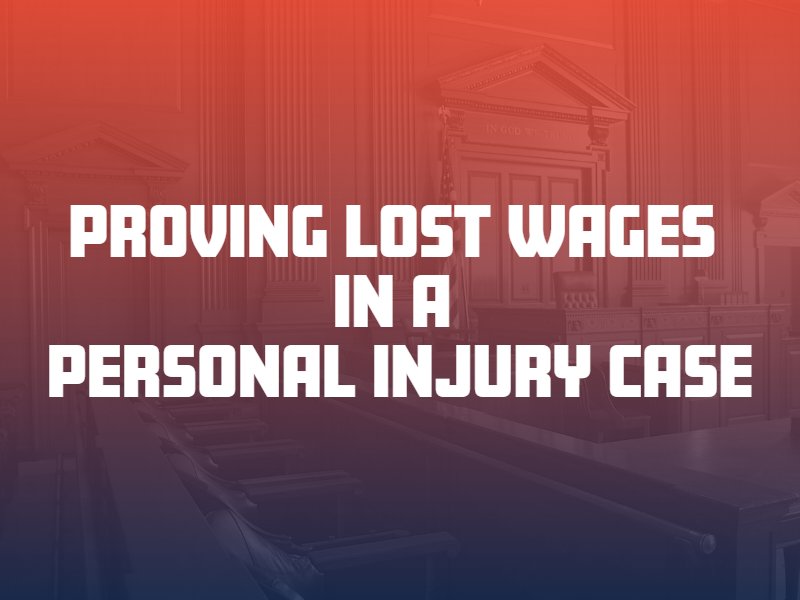An accident can interrupt your life in many ways. If an accident gives you a serious injury, you may have to deal with expensive hospital bills. You could also suffer a monetary loss in the form of lost wages from having to miss time at work.
If someone else caused your accident, that person may be financially responsible for these losses – including the days, weeks or months of missed work. Before you can recover financially, however, you will need to prove lost wages.

Who Is Liable for Your Lost Wages?
The liable party in a personal injury case refers to the person legally and financially responsible. For the most part, the liable party is the one who was negligent or reckless. In personal injury law, negligence refers to a careless act or wanton disregard for the safety of others. If someone is careless and this causes your accident and injury, that person will be responsible for your related losses, including lost past and future wages.
The liable party in your case will depend on the circumstances of your accident; it could be a driver, your employer, a product manufacturer or many other parties. Once you or your lawyer identify the liable party, your side of the case must prove his or her fault for your accident based on a preponderance of the evidence. This is enough evidence to show the defendant is at least 51% responsible for causing your accident. A lawyer can help you fulfill your burden of proof and hold someone accountable for your economic and noneconomic losses.
Evidence of Lost Wages and Employment Benefits
One of the most common categories of damages sought during a personal injury case is lost wages. For a lost wage claim to succeed, your lawyer will generally need to show that your injury and accident forced you to miss time at work, and that this caused you to lose an amount of money you otherwise would have earned. Your lawyer can help you prove the exact amount of your lost wages and benefits using evidence such as:
- Pay stubs
- Employment information
- Proof of sick leave and vacation time
- Customer invoices
- W2s or tax return documents
- Letter from your employer
- Medical records
- A note from your doctor
- Expert testimony
You could be eligible for financial compensation from a defendant to repay your lost hourly wages, overtime, bonuses, tips, special projects, sick days, vacation time, work perks and other sources of income because of your accident. You may also be able to make a case for future lost wages if your doctor believes your injury will prevent you from returning to work for the foreseeable future.
What Are Lost Potential Wages?
Earnings and benefits you already lost because of your accident or injury are not the only category of damages you can claim as a plaintiff. Personal injury law also allows you to seek financial compensation for foreseeable lost earnings, future wages and missed work opportunities. You may be eligible for future lost wage compensation with a long-term or permanent injury, such as:
- Traumatic brain injury
- Spinal cord injury/paralysis
- Loss of limb
- Permanent loss of a significant bodily function
- Loss of sight
- Loss of hearing
- Chronic pain
- Emotional trauma
If your accident or injury interferes with your ability to perform the essential duties of your job for months, years or life, you may have a case for future financial damages. Your lawyer will need to demonstrate your inability to return to work for the length of time you are claiming using evidence such as medical information from your physician.
The amount you could receive in lost wages and lost capacity to earn will depend on factors such as your rate of pay, age and the severity of your injuries. For more information about the potential value of your claim and how to prove lost wages, discuss your case with a personal injury lawyer in Albuquerque.

